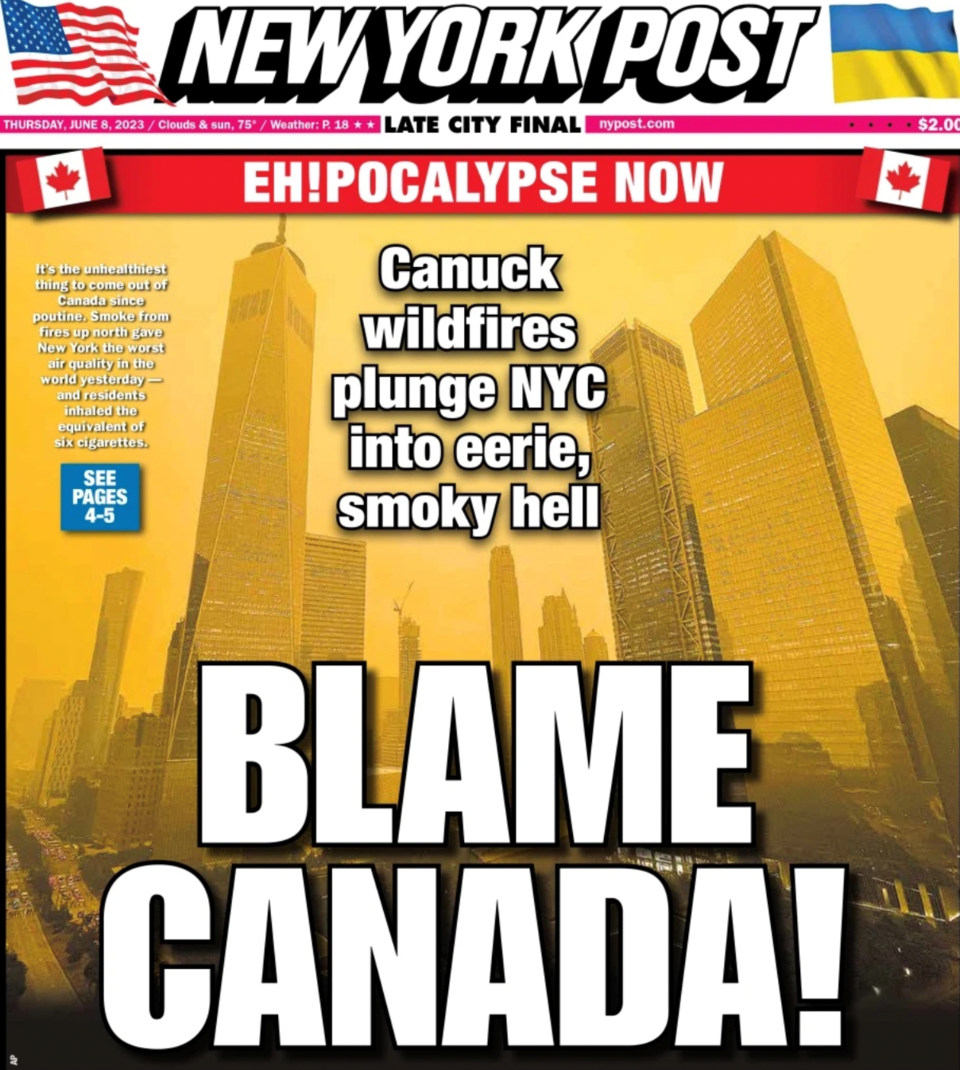As New York City became blanketed in a dystopian orange haze last week, Americans looked for someone or something to blame.
Who did they land on? Their neighbours to the north, of course.
With wildfires still raging in Ontario and Quebec, the memes came fast and heavy as Americans — many of them geographically challenged — discovered where all that pesky smoke was coming from.
On the front page of the unapologetically sensationalist New York Post was the screaming headline, “BLAME CANADA!” — aping a jaunty tune of the same
name from South Park’s 1999 movie — underneath a cheeky banner reading “EH!POCALYPSE NOW.” (The Post has never been much for subtlety.)
While the jabs online mostly amounted to harmless ribbing, there were those down south who used the opportunity to either score political points or spread baseless conspiracy theories. Republican Rep. Marjorie Taylor Greene (also not known for her subtlety) pegged the Big Apple’s awful air quality on “wildfires from Climate Cult Canada,” while others posited on social media that Canada was lighting itself on fire so Prime Minster Justin Trudeau could accelerate his plan to force people into “15-minute cities.”
Now, it’s not fair or useful to paint these uninformed, misleading opinions as representative of the larger whole, but they do speak to a certain passing of the buck that often happens whenever the subject of our collective climate crisis comes up. You hear it from leaders on the grandest stages and from the average Joes at the supermarket: The problem is so massive, so complex; what could I possibly do to change it? Or, another common approach is to find a scapegoat to pin all of our environmental woes on. Like China and India. Or the behemoth oil companies and industrial manufacturers who pollute our air and water on a scale that’s almost beyond comprehension.
There’s even a term for this phenomenon: apocalypse fatigue. Researchers say that, as a society, we have ample knowledge of our climate system and how it interacts with atmospheric emissions. What we don’t understand as well is how people respond to the climate science, and, specifically, how to turn that into action.
These days, experts tend to agree one of the best approaches is to reframe the discussion around climate change as a health issue affecting people we care about as opposed to more doom and gloom. It’s also been suggested that any discussion around climate should be paired with talk around building smarter cities, buildings, as well as energy, food and transportation systems, highlighting that the issue goes beyond mere climate science.
You can rightly debate what the appropriate way forward is to best manage our global climate crisis, but at least one thing is for sure: it’s not going to come from pointing fingers in every direction but our own.




